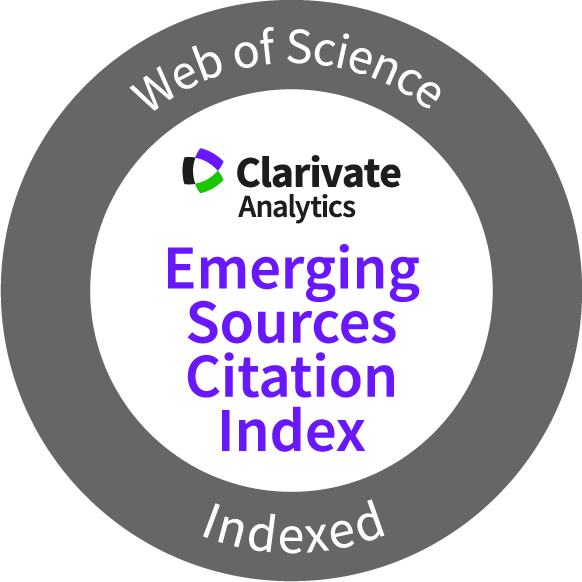Genetic Variations of Malaysian And Golden Thai Strains of Climbing Perch and Their Hybrids Based On The Partial Mitochondrial Cytochrome Oxidase Subunit 1 Gene
Keywords:
Anabas testudineus, Haplogroup, Mitochondrial genome, Phylogenetic RelationshipAbstract
Rapid genetic improvements from selective breeding are anticipated in many aquaculture species and mitogenome is used to complement the morphological taxonomy of hybrids to evaluate its genetic structures. A study of the genetic variations within the two strains (Malaysian strain and Golden Thai strain) of Anabas testudineus (Bloch, 1792) and their hybrids, phylogenetic trees based on cytochrome oxidase subunit 1 (CO1) of the partial mitochondrial DNA gene were constructed using Maximum Likelihood and Neighbor Joining approaches. The findings support the monophyletic status of the genus with only one haplogroup from which other haplotypes were descended and of a single common ancestor. The individual fishes’ phylogenetic relationships revealed two major clades and Saurida undosquamis as an outgroup. All the groups had high haplotype diversity, except for the hybrid Malaysian strain × golden Thai strain (0.1540±0.126). This suggests that different fish species in each of these studies had different nucleotide compositions in their mitochondrial genomes. The highest number of haplotypes and the presence of distinct haplotypes in the Golden Thai strain × Malaysian strain hybrid point to the absence of recent or regular gene flow as well as high genetic diversity within the hybrids. This study demonstrated that the mtDNA diversity of Anabas testudineus from Malaysia and Thailand had been preserved. Studies on the population genetic diversity and molecular evolution of anabas fish species can benefit from the data provided by this work.
Downloads
Metrics
References
Arisuryanti, T., Hasan, R.L., Ayu, K.L, Ratman, N. & Hakim, L. 2019. Genetic Identification of Freshwater Fish Species through DNA Barcoding from Lake Lebo Taliwang, West Nusa Tenggara. Journal of Tropical Biodiversity and Biotechnology, 4(3): 107– 112. DOI: https://doi.org/10.22146/jtbb.46256
Boonkusol, D. & Tongbai, W. 2016. Genetic variation of striped snakehead fish (Channa striata) in river basin of central Thailand inferred from mtDNA COI gene sequences analysis. Journal of Biological Sciences, 16: 37- 43. DOI: https://doi.org/10.3923/jbs.2016.37.43
Clare, E.L., Lim, B.K., Engstrom, M.D., Eger, J.L. & Hebert, P.D. 2007. DNA barcoding of Neotropical bats: species identification and discovery within Guyana. Molecular Ecology Notes, 7(2): 184-190. DOI: https://doi.org/10.1111/j.1471-8286.2006.01657.x
Chen, F., Ma, F., Ma, C., Zhang, H., Zhao, M., Meng, Y., Wei, H. & Ma, L. 2016. Sequencing and characterization of mitochondrial DNA genome for Brama japonica (Perciformes: Bramidae) with phylogenetic consideration. Peer J, 4, 1 - 23. Biochemical Systematics and Ecology, 68: 109- 118. DOI: https://doi.org/10.1016/j.bse.2016.06.012
Fu, Y.X. 1996. New statistical test of neutrality for DNA samples from a population. Genetics, 143(1): 557- 570. DOI: https://doi.org/10.1093/genetics/143.1.557
Hall, T.A. 1999. BioEdit: a user-friendly biological sequence alignment editor and analysis program for Windows 95/98/NT. Nucleic Acids Symposium Series, 41: 95- 98.
Hebert, P.D., Ratnasingham, S., Zakharov, E.V., Telfer, A.C., Leevsque-Beaudin, V., Milton, M.A., Pedersen, S., Jannetta, P. & DeWaard, J.R. 2016. Counting animal species with DNA barcodes: Canadian insects. Philosophical Transactions of the Royal Society B: Biological Sciences, 371 (1702): 20150333. DOI: https://doi.org/10.1098/rstb.2015.0333
Kumar, S., Stecher, G., Li M, Knyaz, C. & Tamura, K. 2018. MEGA X: Molecular evolutionary genetics analysis across computing platforms. Molecular Biology and Evolution, 35(6):1547–1549. DOI: https://doi.org/10.1093/molbev/msy096
Lakra, W.S., Verma, M.S., Goswami, M., Goswami, M., Lal, K.K., Mohindra, V., Punla, P., Gopalakrishnan, A.,Singh, K.V., Ward, R.D. & Hebert, P. 2011. DNA Barcoding of Indian marine fishes. Molecular Ecology Resources, 11(1): 60- 71. DOI: https://doi.org/10.1111/j.1755-0998.2010.02894.x
Larkin, M.A., Blackshields, G., Brown, N.P., Chenna, R., McGettigan, P.A., McWilliam, H., Valentine, F., Wallance, I.M., Wilm, A., Lopez, R. & Thompson, J.D. 2007. Clustal W and Clustal X version 2.0. Bioinformatics, 23(21): 2947– 2948. DOI: https://doi.org/10.1093/bioinformatics/btm404
Leigh, J.W. & Bryant, D. 2015. POPART: full-feature software for haplotype network construction. Methods in Ecology and Evolution, 6 (9): 1110- 1116. DOI: https://doi.org/10.1111/2041-210X.12410
Li, Z. 2015. Trends and prospects of Chinese inland aquaculture. In: International Workshop on Sustainability Science for SDGs 4-5, Kuala Lumpur, Malaysia.
Persis, M., Chandra Sekhar Reddy, A., Rao, L.M., Khedkar, G.D., Ravinder, K. & Nasruddin, K. 2009. COI (cytochrome oxidase-I) sequence based studies of Carangid fishes from Kakinada coast, India. Molecular Biology Reports, 36: 1733–1740. DOI: https://doi.org/10.1007/s11033-008-9375-4
Quattro, J.M. & Vrijenhoek, R.C. 1989. Fitness differences among remnant populations of endangered Sonoran topminnow. Science, 245(4921): 976– 978. DOI: https://doi.org/10.1126/science.2772650
Rozas, J., Ferrer-Mata, A., Sánchez-DelBarrio, J.C., Guiraro, S., Librado, P., Ramos-Onsins,S.E. & sanchex-Gracia, A. 2017. DnaSP 6: DNA sequence polymorphism analysis of large data sets. Molecular Biology and Evolution, 34(12): 3299- 3302. DOI: https://doi.org/10.1093/molbev/msx248
Saccone, C., De Giorgi, C., Gissi, C., Pesole, G. & Reyes, A. 1999. Evolutionary genomics in Metazoa: The mitochondrial DNA as a model system, Gene, 238(1): 195– 209. DOI: https://doi.org/10.1016/S0378-1119(99)00270-X
Scribner, K.T., Page, K.S. & Bartron, M.L. 2000. Hybridization in freshwater fishes: A review of case studies and cytonuclear methods of biological inference. Reviews in Fish Biology and Fisheries, 10(3): 293-323. DOI: https://doi.org/10.1023/A:1016642723238
Tabassum, M., Jahan, H. & Latifa, G.A. 2016. Molecular identification of two gobi fishes of Bangladesh using cytochrome oxidase subunit I (COI) gene sequences. Bangladesh Journal of Zoology, 44(2): 175- 184. DOI: https://doi.org/10.3329/bjz.v44i2.32757
Tajima, F. 1989. Statistical method for testing the neutral mutation hypothesis by DNA polymorphism. Genetics, 123(3): 585- 595. DOI: https://doi.org/10.1093/genetics/123.3.585
Wang, C., Hu, Y., Warren, A. & Hu, X., 2021. Genetic diversity and phylogeny of the genus Euplotes (Protozoa, Ciliophora) revealed by the mitochondrial CO1 and nuclear ribosomal genes. Microorganisms, 9(11): 2204. DOI: https://doi.org/10.3390/microorganisms9112204
Ward, R.D., Zemlak, T.S., Innes, B.H., Last, P.R. & Hebert, P.D.N. 2005. DNA Barcoding Australia’s fish species. Philosophical Transactions of the Royal Society of London B: Biological Sciences, 360 (1462): 1847-1857. DOI: https://doi.org/10.1098/rstb.2005.1716
Whalan, S., de Nys, R., Smith-Keune, C., Evans, B.S., Battershill, C. & Jerry, D.R. 2008. Low genetic variability within and among populations of the brooding sponge Rhopaloeides odorabile on the central Great Barrier Reef. Aquatic Biology, 3(2): 111- 119. DOI: https://doi.org/10.3354/ab00066
Published
How to Cite
Issue
Section
Any reproduction of figures, tables and illustrations must obtain written permission from the Chief Editor (wicki@ukm.edu.my). No part of the journal may be reproduced without the editor’s permission





















